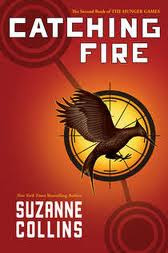One of the pitfalls of voracious readers and book collectors is the well-meaning friend who urges a new novel with, “You have to read this!” or “I think you will like it.” Such is the case with
Cotton Rock by Janet Smith Post. When I first received the book, I skimmed a few pages, looked at the cover and the blurbs, and decided the novel was not a priority. But I didn’t want to seem ungrateful, so I put it on my summer reading list.
The novel has an interesting premise. John Sinclair, is an English Professor at a small college. He is on sabbatical to complete his novel, but since the death of his wife in a tragic car accident, he has been unable to write. As the end of his leave approaches, he moves to his grandfather’s cabin on the White River in Arkansas. He offers to teach, gratis, a class in creative writing to the local residents. Three of his students figure prominently in the novel.
Emmett has been hired to write a newspaper column on fishing in the White River. Lucy wants to tell stories that angels gossip about when otherwise unoccupied in guarding children. Lastly, Anna, an older woman caring for her mother who has Alzheimer’s, also lives with her daughter, Leah, and her granddaughter, Harlo. Two of Anna’s children drowned in the river, although the body of Sam, her oldest, was never found. Anna writes about her life on the river.
Sinclair writes “Thoughts from the Backporch” wherein he muses on his life, his novel, the class, the three students I mentioned, and the river. In fact, the White River becomes a character itself.
After a few entries about fishing and angel gossip, I began skipping those entries in favor of concentration on Sinclair and Anna’s compelling stories. Post’s prose is lyrical, and flows right alongside the river. In one of Sinclair’s “Thoughts,” he recounts a fishing trip with a colleague who came for a visit. Post writes,
“‘The motor’s loud; I’ll row for a while.’ I gave a pull on the oars. ‘Catch the true serenity of the river.’
Patches of fog lifted from the water. The hoarse cry of a blue heron carried down the channel.
Just below my cabin, we entered a series of hills shouldering the river on either side, their thick woods running down to the waters edge. Occasionally the woods gave way to meadows filled with willows. I spied a doe and her fawn feeding. They lifted their heads and gazed our direction, but being accustomed to boats sliding by, they resumed their feed” (48).
Anna’s entries are warm and soft and filled with good old country common sense. In her eleventh entry, Anna writes,
"I think how Harlo loves the bread when it’s warm from the oven. She will spread it with butter and fill her little mouth with its goodness. I think how the bread and a cup of tea will bring a sweet moment to my Momma’s life. The bread is one moment I can fix. A little fix. I add more flour, knead and fold” (151).
Anna carries much pain and sorrow, but she handles the regrets with dignity and wisdom.
One minor flaw in the novel is some confusion over family relationships. Early on, I began constructing a family tree, which helped quite a bit. There were also a number of typographical errors. Despite all this, Cotton Rock is a lovely, heart-warming and heart breaking story. No matter how simple we try and live our lives, complications always intrude. So why do we add complications of our own? Life should flow calmly, relentlessly – just like the river – and we should expect an occasional flood. 4-1/2 stars
--Chiron, 7/9/12











